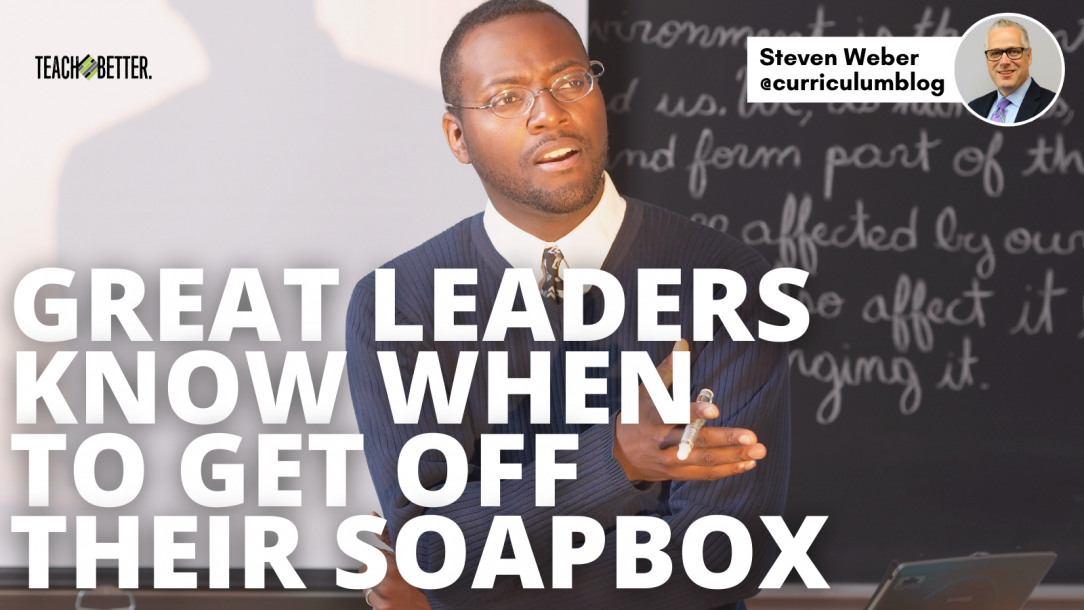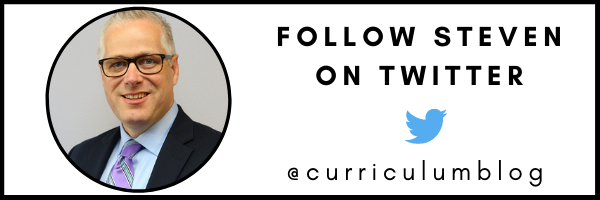TL;DR:
- We all have a soapbox. It may be more important to get off the soapbox than to constantly stand on the soapbox and announce our good intentions.
- The “Knowing-Doing Gap” is created when school staff know the jargon, but fail to change their practice.
- Eduspeak is one of the main barriers to supporting more students and transforming teaching and learning in our schools.
- In order to make an impact, leaders need a sense of urgency, an action plan, an implementation team, and a bias for action.
Have you ever heard an educator say, “I’m sorry, this is my soapbox?” If we are honest, we all have a soapbox. Some educators are passionate about literacy and others are focused on citizenship skills. If you have served on a School Improvement Team you may recall passionate speeches about the school’s mission, vision, core values, and soft skills students need to develop before advancing to the next grade level.
Great Leaders Know When to Get Off Their Soapbox: The Knowing-Doing Gap
As leaders, we need to remember that it may be more important to get off the soapbox than to constantly stand on the soapbox and announce our good intentions. Educators make posters with inspiring quotes and post them on social media. Teachers hang posters throughout the school and may even buy a T-shirt for staff with the school’s motto or hashtag across the back. In The Knowing-Doing Gap, Pfeffer and Sutton (2000) observe that one of the great mysteries of organizational life is the disconnect between what we know and what we do.
Get off the soapbox and develop an action plan. Teaching and learning involves meetings and reflective practitioners. Click To Tweet
Eduspeak is one of the main barriers to supporting more students and transforming teaching and learning in our schools. Eduspeak is when the teachers know the jargon of the profession and they can get on a soapbox to tell their co-workers why a program, initiative, or procedure is this right path for the school staff. The “Knowing-Doing Gap” is created when school staff know the jargon, but fail to change their practice.
Eduspeak Used On Soapboxes
We need to close achievement gaps.
It is critical that we increase personalized learning.
Our goal is to increase the high school graduation rate.
Our school supports the whole child.
We prepare all students for life.
We should teach soft skills across content areas.
Our school will be a project-based learning school.
STEM will prepare each student to graduate college and career ready.
We need to emphasize critical thinking skills.
We will provide students with formative assessments in order to guide teaching and learning.
[scroll down to keep reading]Great Leaders Know When to Get Off Their Soapbox: Make an Impact
In the absence of goals, leaders are hoping for change and hope is not a strategy. Grant Wiggins and Jay McTighe remind educators that “the most successful teaching begins with clarity about desired learning outcomes and about the evidence that will show learning has occurred.” Get off the soapbox and develop an action plan. Teaching and learning involves meetings and reflective practitioners. Often, we have meetings to review last month’s meeting minutes.
In order to make an impact, leaders need the following:
- A Sense of Urgency (This may be your soapbox.)
- An Action Plan
- An Implementation Team
- A Bias For Action
Note: If you have a soapbox, you may be stuck at Step 1. The difference between having a soapbox issue and making a difference in your school is moving into Steps 3-4. Do you need to get off your soapbox?
About Steven Weber
Dr. Steven Weber is the Associate Superintendent for Teaching and Learning with Fayetteville Public Schools (AR). His areas of research include curriculum design, formative assessment, professional learning, and school leadership.




